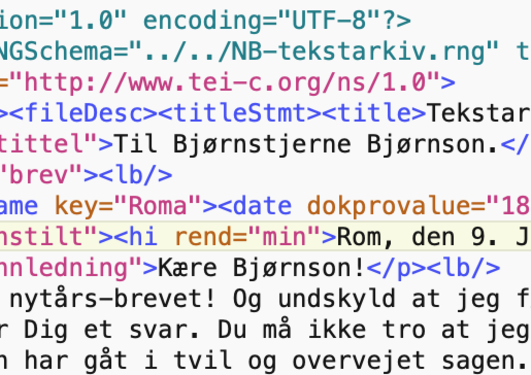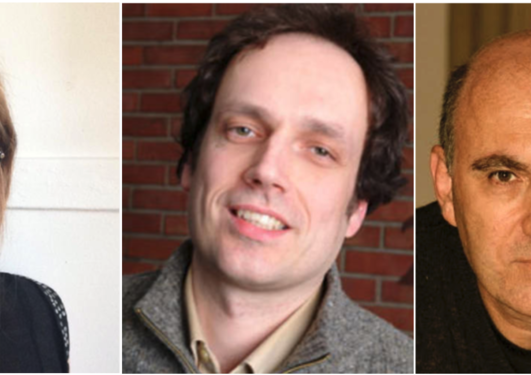Recap: Digital Editions Lightning Lunch
During this lunch meeting, people listened to three lightning presentations on different approaches and concerns regarding critical digital editions, followed by a lively discussion.

Hovedinnhold
Julia King, PhD candidate and co-organizer of the DHNetwork, introduced the theme and format of the lightning lunch. After she introduced the speakers Arnulf Christian Mattes, Daniel Apollon and Hannah Gillow-Kloster, all participants briefly introduced themselves and their interest in digital editions, providing a great foundation for the discussion after the lightning talks.
Arnulf Christian Mattes, leader of the Centre for Grieg Research, introduced various projects that combined music history with digital dissemination. The resources are plentiful but the digital engagement has to be developed in a meaningful way. Mattes highlighted that digitization is a point of departure, but not the final destination. The current work-in-process ranges from the Collective Work of Grieg, which reimagines a 1980’s critical edition in digitized form, to Norwegian Musical Heritage, a collective effort to publish and edit Norwegian composers with the explicit purpose of reaching musicians and conductions to use and play the music.
Arnulf was followed by professor in Digital Culture (UiB) Daniel Apollon, who gave a philosophical introduction to what he calls “neotexts”. His goal was to address the relevance of digital humanities through the omnipresent engagement with online texts found on the internet. Apollon’s presentation listed the characteristics of these neotexts, including the dramatically increased quantity in our daily lives, the practice of intermeshing and reuse of texts online, and the issues of ephemerality and traceability with these ever-changing texts. These characteristics and related issues are what Apollon sees as the raison d 'être of the digital humanities.
Finally, Hannah Gillow-Kloster gave an overview of the Skeivt Arkiv, a physical and online archive of LGBTQ+ history in Norway. Since it was first conceived of in 2012, Skeivt Arkiv has grown significantly. The goal of the archive is to make LGBTQ+ history visible in Norway, as it has been invisible in history and academia as well as in daily life. For this reason, Gillow-Kloster highlights that the archive set up in a visually accessible way that does not require people to understand how database systems work. Additionally, the archive has a strong social media presence, which is used both for reaching new readers as well as find contributions to the archive.
After the presentations, Jill Walker Rettberg led a plenary discussion, including a conversation on the institutionalization of archives compared to fan archives, as well as a discussion on the topic of confidentiality in public archives and the legal and ethical concerns involved.
Together, the presentations and discussion highlighted the different ways in which we (can) use digital editions in our varied research areas. Our next event will be a hands-on approach to digital editions. Alois Pichler (UiB) and Max Hadersbeck (LMU) with give a workshop on how to create digital editions using XML on May 21.



